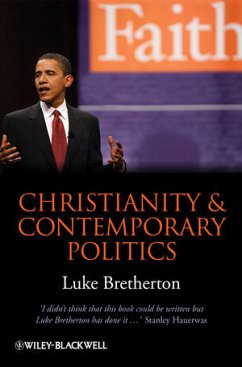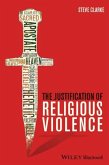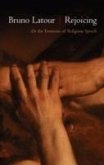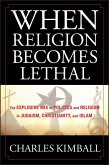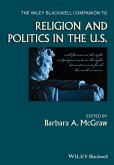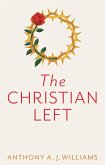Congratulations to Luke Bretherton on winning the 2013 Michael Ramsey Prize for Theological Writing for Christianity and Contemporary Politics!
Relations between religious and political spheres continue to stir passionate debates on both sides of the Atlantic. Through a combination of theological reflection and empirical case studies, Bretherton succeeds in offering timely and invaluable insights into these crucial issues facing 21st century societies.
Relations between religious and political spheres continue to stir passionate debates on both sides of the Atlantic. Through a combination of theological reflection and empirical case studies, Bretherton succeeds in offering timely and invaluable insights into these crucial issues facing 21st century societies.
- Explores the relationship between Christianity and contemporary politics through case studies of faith-based organizations, Christian political activism and welfare provision in the West; these case studies assess initiatives including community organizing, fair trade, and the sanctuary movement Offers an insightful, informative account of how Christians can engage politically in a multi-faith, liberal democracy
- Integrates debates in political theology with inter-disciplinary analysis of policy and practice regarding religious social, political and economic engagement in the USA, UK, and continental Europe
- Reveals how Christians can help prevent the subversion of the church - and even of politics itself - by legal, bureaucratic, and market mechanisms, rather than advocating withdrawal or assimilation
- Engages with the intricacies of contemporary politics whilst integrating systematic and historical theological reflection on political and economic life
Dieser Download kann aus rechtlichen Gründen nur mit Rechnungsadresse in D ausgeliefert werden.

